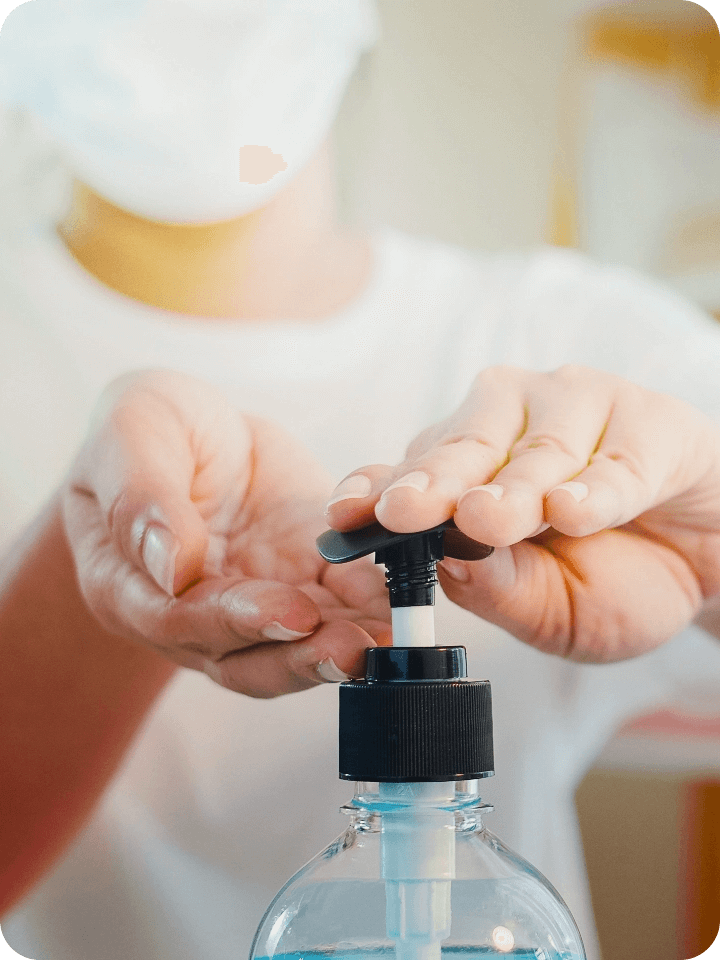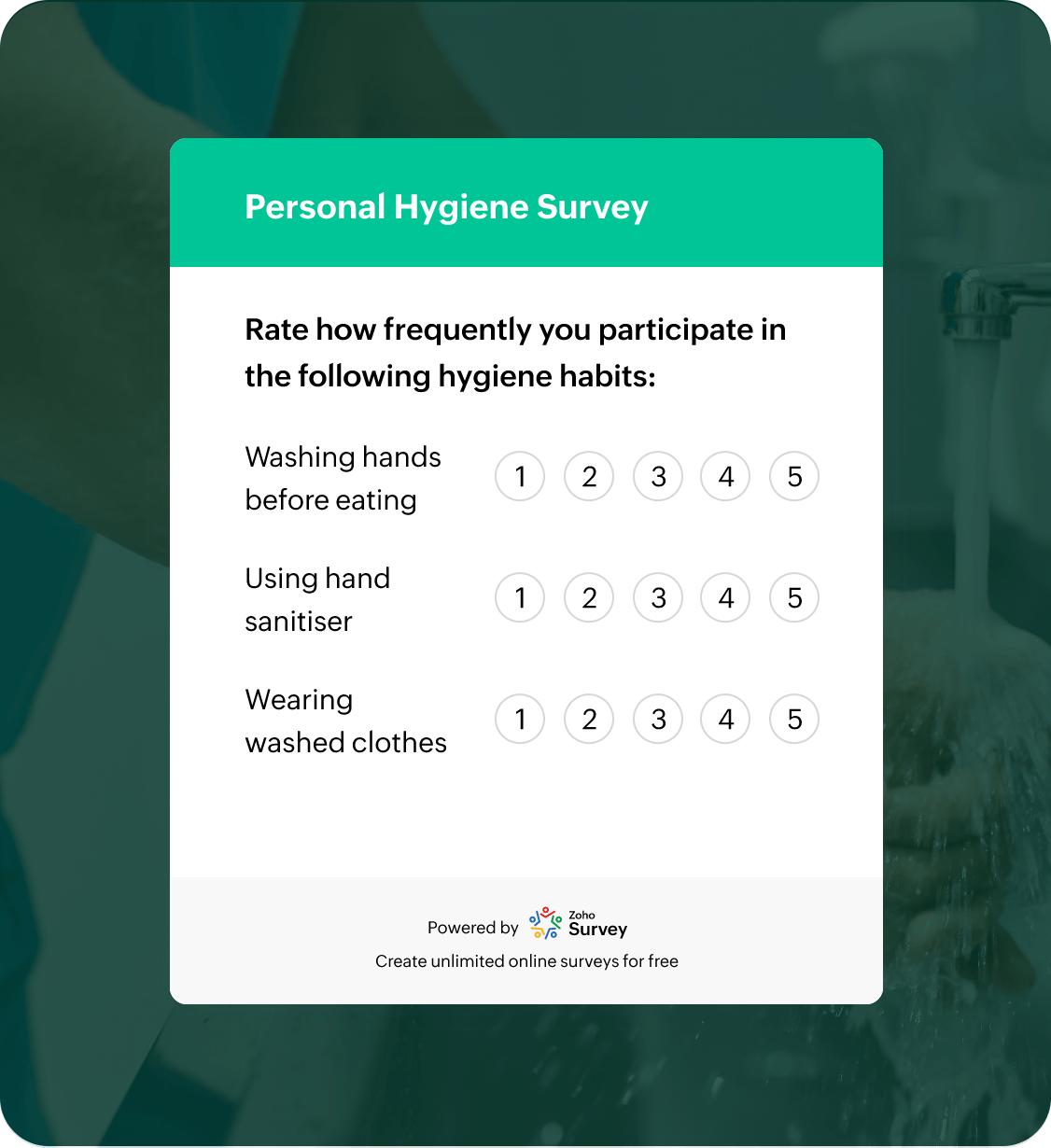Personal Hygiene Survey
Before you start treating a patient, it is necessary to assess their current health and relevant habits. A personal hygiene survey gives you an inside look into a patient's daily life so that you can evaluate any current symptoms in context and recommend an effective course of treatment.
In primary care and the treatment of chronic conditions, these survey results can also help providers give patients targeted recommendations to improve their health through day-to-day personal care.
Try this templateHow do personal hygiene surveys enhance patient well-being?
A personal hygiene survey offers a glimpse into their daily habits to enable informed treatment decisions and personalized advice on self-care routines that support well-being.
Personal Hygiene Survey
12
2500+
1min
Nurturing well-being with personal hygiene assessments

Early intervention and risk reduction
By gaining insights into a patient's personal hygiene practices, healthcare professionals can identify risk factors that may increase the likelihood of certain illnesses or chronic conditions developing or becoming worse. This allows for timely intervention and preventive measures to reduce the patient's long-term risk.
Tailored treatment plans
Understanding a patient's daily health habits through their survey responses helps care providers develop treatment plans that align with the patient's existing routines. This personalized approach increases the likelihood of treatment compliance, as the recommendations are integrated into the patient's lifestyle. If the recommended treatment involves behavioral changes, providers can work with patients to develop realistic plans and goals.
Chronic disease management
Lifestyle factors often play an important role in the progression of chronic conditions, which also affect patients' ability to take care of themselves. Understanding a patient's habits is crucial for providing effective long-term treatment. Surveys enable healthcare providers to tailor their recommendations based on the specific challenges facing that patient.
Dental and oral health assessment
By assessing a patient's oral hygiene practices, healthcare providers can tailor advice for maintaining good dental health and overall well-being. This may include recommendations for proper brushing, flossing, and regular dental check-ups.
Effective treatment for diverse patient groups
For individuals with disabilities or elderly patients, a personal hygiene survey can assist in understanding specific functional limitations. This allows healthcare providers to recommend adaptive devices, caregiving strategies, or modifications to living spaces to enhance hygiene practices and overall quality of life.


